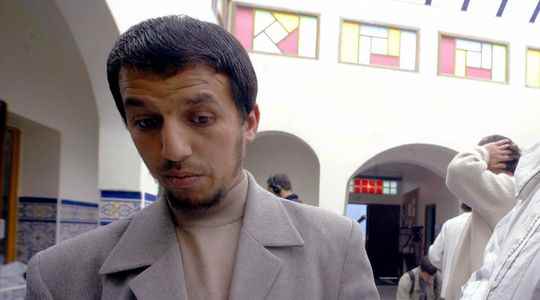After 48 hours of reflection, the Council of State granted Gérald Darmanin’s request. This Tuesday, August 30, the administrative judges authorized the Ministry of the Interior to proceed with the expulsion of Imam Hassan Iquioussen, of Moroccan nationality, who was accused of anti-Semitic, homophobic and sexist remarks. A sign that the decision required a complex analysis, the collegiate formation of the judge in chambers, made up of three experienced judges, was convened, while a single judge usually rules on this type of case. Prefect Gilles Clavreul analyzes for L’Express the springs of this highly anticipated ordinance.
L’Express: Does the decision of the Council of State to authorize the expulsion of Imam Iquioussen mark a shift in the balance of the law?
Gilles Clavreul: There’s a little cursor movement, that’s obvious. But the decision is so chiseled, meticulous, supported, that its detractors will have difficulty in showing that the Council of State lies down in front of the minister, that it is a political decision. It will be said by some of course, but everything in the ordinance shows otherwise.
The administrative court of Paris had considered that the expulsion of Imam Iquioussen was a disproportionate attack on his right to lead a normal family life. Why did the Council of State decide against it?
The Council of State does not retain the same qualification of the facts with which it is charged. Regarding his anti-Semitic remarks, the administrative court took into account the apologies made by Hassan Iquioussen. However, the Council of State considers that these apologies are not sincere. He makes an assessment as close as possible to the facts, noting that the “apologies” of 2004 were made only in reaction to the emotion caused by his speech that the remarks were repeated after 2004. He also retains that Hassan Iquioussen never asked that the videos of his anti-Semitic comments be taken down. The Council of State further notes that Iquioussen “develops a systematic discourse on the inferiority of women”, for the last time in 2021. Unlike the administrative court, the Council of State considers that these remarks, because that they have been repeated and never denied, justify an expulsion.
Would this decision have been possible before the separatism law of August 2021?
Before the separatism law, I don’t know, but what is certain is that ten years ago, this decision would not have been possible. Ten years ago, when we spoke of the Muslim Brotherhood, we were told that they were conservative preachers and that it was no more serious than that. It is a contribution of this decision: from now on, the systematic inferiorization of women can constitute a provocation to discrimination or hatred. It has been suggested that statements can be dangerous, even when they do not constitute incitement to terrorism. Moreover, the Council of State did not follow the government which considered that Hassan Iquioussen had developed a separatist discourse and had thereby formulated a call for hatred. Only the points of anti-Semitism and the inferiorization of women were retained.
The judges considered that the attack on the imam’s family life was justified. Does this point mark a break with the usual balance in this type of decision?
Attention, the order of the judges is very fine. They detail precisely on what condition this expulsion could be accepted. It is noted that the children of the imam are adults, financially independent, that his wife can join him in Morocco. We can deduce, conversely, that if Imam Iquioussen had been a father at a young age, he could not have been expelled, or in any case that the balance to be found would have been different. It is clear that this decision is not a general green light for any expulsion, it is weighed, targeted, and all the more solid.
Isn’t the fact that Hassan Iquioussen has never been convicted for the remarks that justify his expulsion disturbing?
It has nothing to do. The judges decide on the choice of the State not to grant a new residence permit to Hassan Iquioussen, for a matter of public order. Whether or not his remarks gave rise to a criminal trial does not change anything.
If we go a little further, will we still be able to claim Salafism or the Muslim Brotherhood in France tomorrow?
This decision does not prohibit any opinion, it says that anti-Semitic and sexist remarks, when repeated, can justify a non-renewal of a residence permit. It’s still different. Religious freedom is not inferior to other freedoms, but it is not superior either, and therefore does not justify being able to say what one wants.
Can we still imagine that this decision will be overturned by the European Court of Human Rights?
In theory, Hassan Iquioussen can completely seize the ECHR to have his religious freedom recognized and that his right to lead a normal family life has been violated. The ECHR will study the case to find out whether the balance between public order and his individual rights has been respected. But in general, it leaves a latitude of appreciation to the States on these questions. Anyway, Iquioussen has announced that he will move to Belgium, so I’m not sure he will appeal.
Precisely, if he settles in Belgium, a few kilometers from the French border, what will prevent him from returning to France regularly despite his residence ban?
Physically, nothing. Iquioussen could taunt the state in this way. But Belgium still has to accept it on its territory. He would also face criminal penalties if arrested in France.
